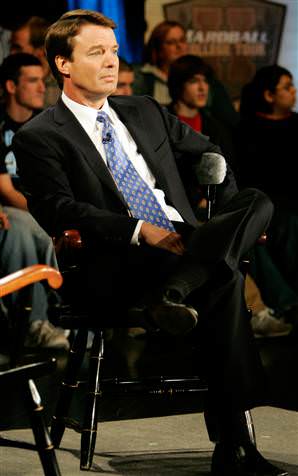Edwards’ Iraq Vote Explained
In an upcoming memoir, Bob Shrum, former adviser to John Edwards, says he pushed the then-senator to vote for the Iraq war authorization out of concern for his political future Edwards denies the claim, saying of his vote: "It was not a political calculation It was a mistake".
In an upcoming memoir, Bob Shrum, former adviser to John Edwards, says he pushed the then-senator to vote for the Iraq war authorization out of concern for his political future. Edwards denies the claim, saying of his vote: “It was not a political calculation. … It was a mistake.”
Your support matters…AP:
Shrum writes that Edwards, then a North Carolina senator, called his foreign policy and political advisers together in his Washington living room in the fall of 2002 to get their advice. Edwards was “skeptical, even exercised” about the idea of voting yes and his wife Elizabeth was forcefully against it, according to Shrum, who later signed on to John Kerry’s presidential campaign.
But Shrum said the consensus among the advisers was that Edwards, just four years in office, did not have the credibility to vote against the resolution and had to support it to be taken seriously on national security. Shrum said Edwards’ facial expressions showed he did not like where he was being pushed to go.
Edwards spokesman Jonathan Prince said the only people who influenced Edwards’ vote were his wife and foreign policy experts who worked under President Clinton and argued that Saddam Hussein had weapons of mass destruction. That turned out not to be true.
Independent journalism is under threat and overshadowed by heavily funded mainstream media.
You can help level the playing field. Become a member.
Your tax-deductible contribution keeps us digging beneath the headlines to give you thought-provoking, investigative reporting and analysis that unearths what's really happening- without compromise.
Give today to support our courageous, independent journalists.





You need to be a supporter to comment.
There are currently no responses to this article.
Be the first to respond.